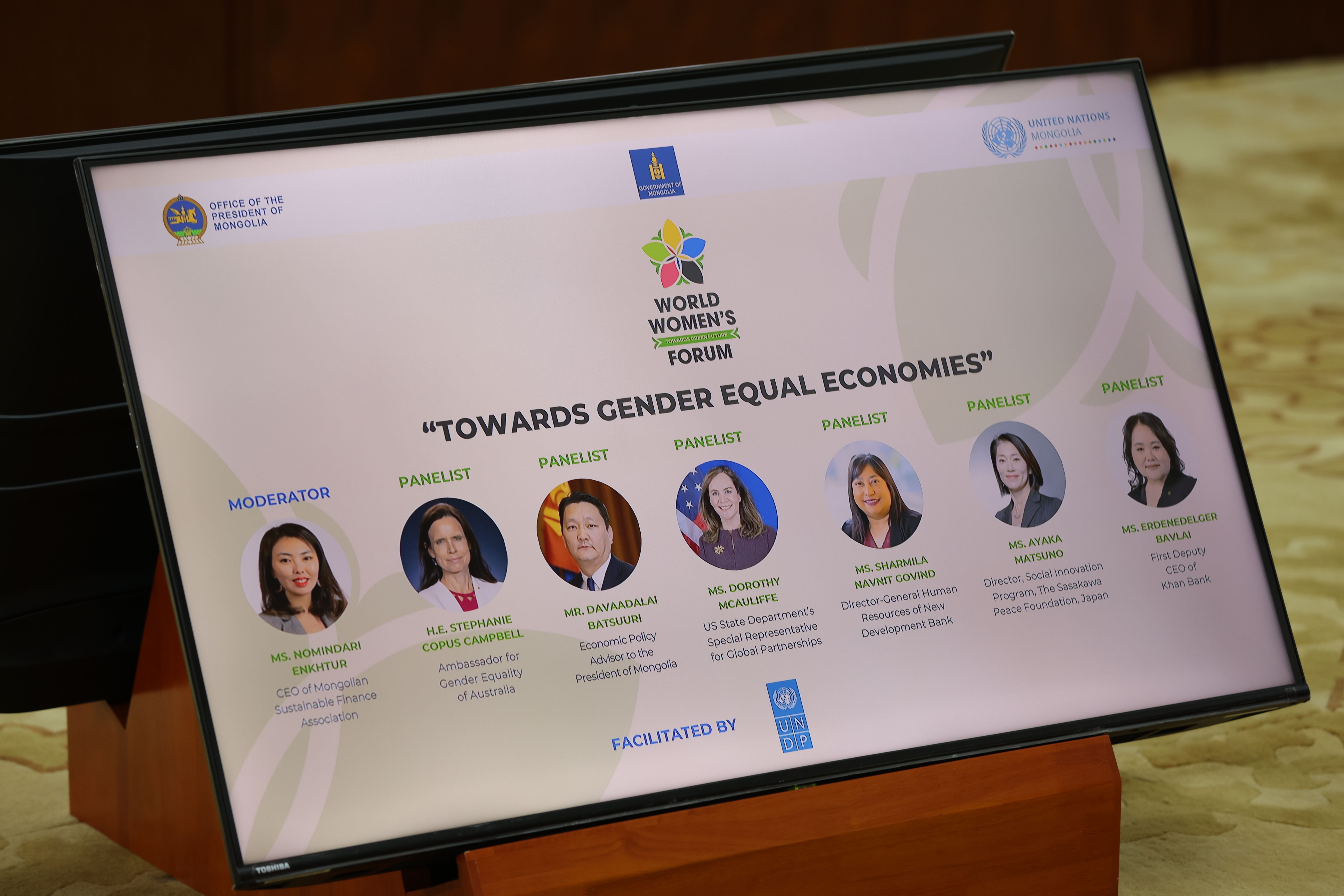UNDP Highlights Gender Equal Economies at the World Women's Forum in Mongolia
August 21, 2024

Ulaanbaatar, August 22, 2024 —UNDP, in collaboration with the Government of Mongolia, hosted a thematic session titled "Towards Gender Equal Economies" at the World Women’s Forum. This high-level discussion brought together key stakeholders, government officials, policymakers, and international experts to explore the transformative role of fiscal policies, private capital, and institutional reforms in achieving gender-equal economies.
Mongolia is hosting the World Women’s Forum for the first time under the auspices of the President of Mongolia, featuring regional and global leaders and demonstrating its strong commitment to gender equality, gender-equal economies, and women’s leadership.
Mongolia ranks 85th out of 146 countries in the Global Gender Gap Report 2024, reflecting progress but also highlighting the journey ahead in achieving gender equality. With women earning considerably less than men in Mongolia and spending 2.5 times as much time on unpaid domestic and care work, there is an urgent need to address this disparity to unlock economic potential. Countries that have implemented gender-responsive budgeting have seen increase in public sector efficiency, benefiting sectors such as education and healthcare.

The UNDP-led thematic session emphasized the urgent need for substantive reforms in current economic structures, highlighting the critical link between gender equality, economic growth, and social progress. With Mongolia as one of the pioneers in attempting to align its fiscal policies with gender equality goals, the dialogue provided a platform to showcase innovative solutions and best practices from Mongolia and around the globe.
EQUANOMICS - a UNDP initiative supporting governments in creating gender-responsive tax policies, budgets, and public institutions - was featured at the center of the session. It addresses the changes needed in both the expenditure and revenue sides as essential for understanding the real impact of fiscal policy on gender equality.
During the session which was moderated by Ms. Nomindari Enkhtur, CEO of the Mongolian Sustainable Finance Association, panelists discussed the critical role of public and private finance in shaping economies to advance gender equality and align with broader socio-economic goals and the SDGs. Distinguished panelists included Her Excellency Stephanie Copus Campbell, Ambassador for Gender Equality of Australia; Mr. Davaadalai Batsuuri, Economic Policy Advisor to the President of Mongolia, Ms. Ayaka Matsuno, Director, Social Innovation Program Sasakawa Peace Foundation of Japan; Ms. Sharmila Navnit Govind, Director-General Human Resources of New Development Bank; Ms. Dorothy McAuliffe, US State Department’s Special Representative for Global Partnerships; and Ms. Erdenedelger Bavlai, First Deputy CEO of Khan Bank of Mongolia.
The session concluded on the need for integrated approaches that leverage fiscal policies, tax administration, institutional reform, and private capital to create gender-equal economies. Participants identified new opportunities and partnerships for mobilizing public and private resources and called for further action toward achieving gender equality through inclusive financial systems at country and global levels.
***
About UNDP
UNDP is the leading United Nations organization fighting to end the injustice of poverty, inequality, and climate change. Working with our broad network of experts and partners in 170 countries, we help nations to build integrated, lasting solutions for people and planet.
For further inquiries:
Erdenesukh Otgonbayar | Communications Analyst | UNDP in Mongolia | erdenesukh.otgonbayar@undp.org


 Locations
Locations





